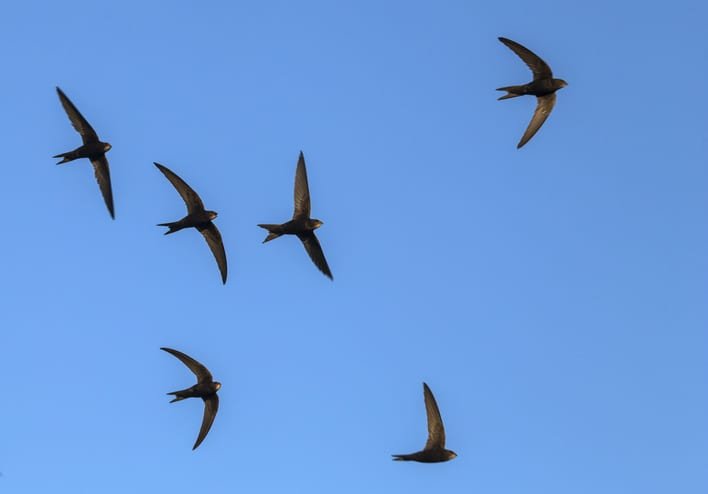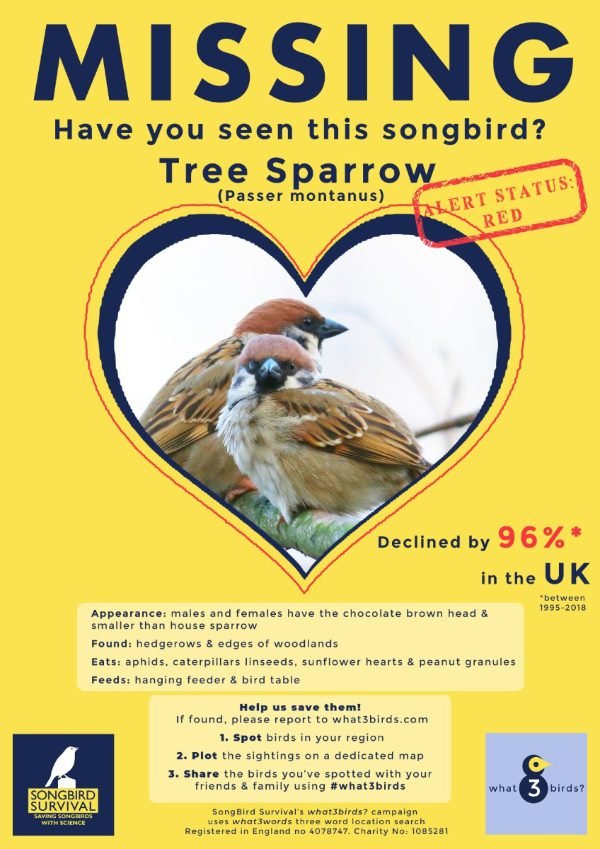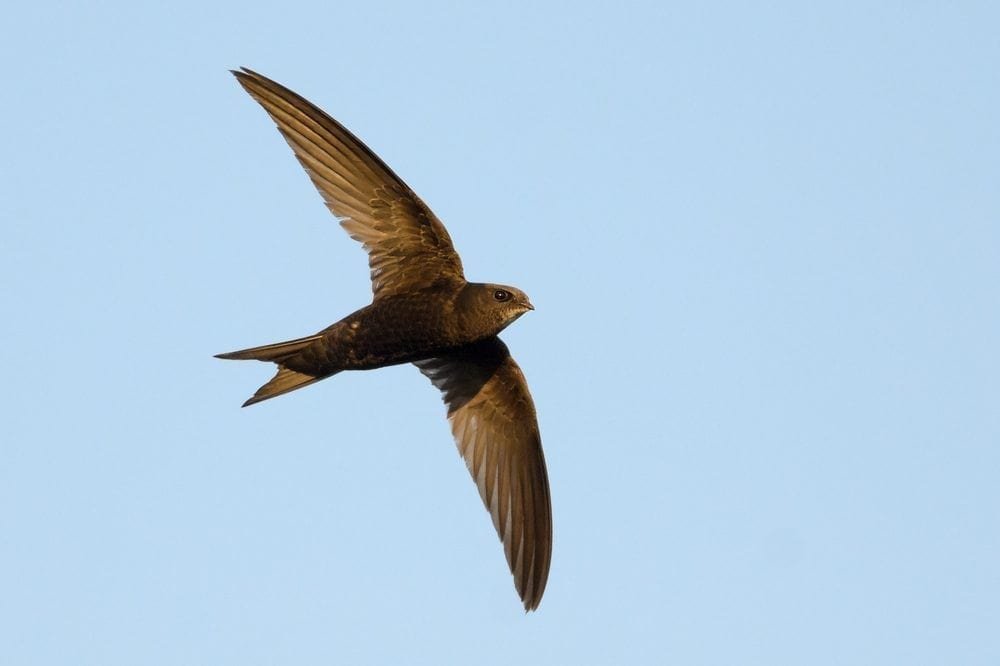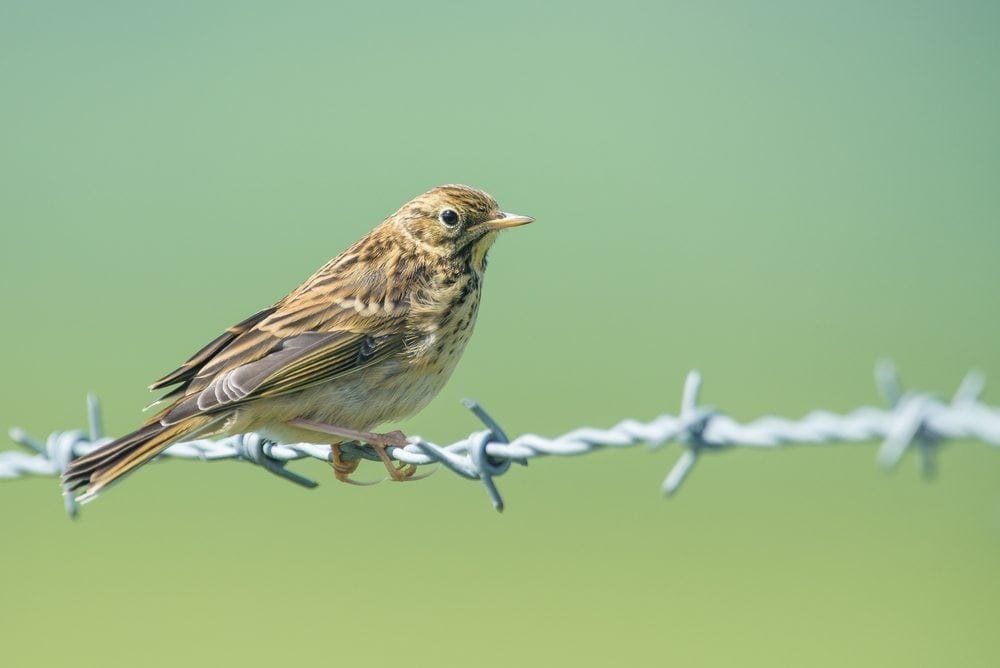Four out of five Brits say birdsong makes them happier and 72% say it makes them less stressed.
But how many people know which three songbird species are the most threatened in their region, or how to help keep their exquisite songs alive?
The independent charity SongBird Survival has launched a new campaign to encourage members of the public – old and young, rural and urban – to ‘spot and plot’ three species of bird they can see, and also learn about the three species at risk from extinction in their region.
The campaign is being launched for International Dawn Chorus Day (02 May).
Help ‘stem the tide’ of extinction
UK songbird populations have declined by 50% across all songbird species – but some species have declined by up to 90% while others have increased.
Birdwatch results revealed that the goldfinch and collared dove (which had done well in recent years) had declined year on year, and only a few species – robins, blackbirds, carrion crows and song thrush – increased.
‘Our what3birds? campaign is focused on education, but its ultimate goal is to keep a rich and diverse dawn chorus alive. Few people realise that UK songbirds have fallen 50% in just two generations – 50 years! Yet the public can help stem this tide of extinction by finding out more, taking simple steps to support local songbirds, and putting pressure on policy makers to make songbird survival a priority.’
SUSAN MORGAN
CEO of SongBird Survival
Species at risk by region
The most at-risk species include the birds below; the figure reveals the % decline in population 1995-2018.
NORTH EAST
Swift (-72%), Greenfinch (-63%), Yellowhammer (-63%)
NORTH WEST
Swift (-74%), Greenfinch (-59%), Yellowhammer (-46%)
YORKSHIRE
Greenfinch (-64%), Starling (-63%), Cuckoo (-62%)
EAST MIDLANDS
Cuckoo (-83%), Willow Warbler (-57%), Meadow Pipit (-54%)
WEST MIDLANDS
Cuckoo (-78%), Starling (-70%), Greenfinch (-52%)
SOUTH EAST
Turtle Dove (-96%), Willow Warbler (-81%) House Martin (-56%)
SOUTH WEST
Cuckoo (-83%), Starling (71%), Mistle Thrush (-57%)
LONDON
House Sparrow (-67%), Starling (-63%), Mistle Thrush (-59%)
EAST ANGLIA
Turtle Dove -95%|Willow Warbler -81%|Meadow Pipit -61%
WALES
Swift (-72%), Greenfinch (-71%), Starling (-65%)
NORTHERN IRELAND
Greenfinch (-82%), Skylark (-28%), Reed Bunting (-28%)
SCOTLAND
Greenfinch (-67%), Curlew (-59%), Lapwing (-56%)
‘A combination of factors has led to the halving of UK songbirds in just two generations: habitat loss, lack of food, predation and invasion by non-native species are all to blame. Education is everything when it comes to conservation, so what3birds? will inform people which species are at risk in their region, and how to help. We hope the campaign stokes curiosity and unites us all as bird lovers of Britain.’
GEORGINA BRADLEY
Manager of SongBird Survival
 Play Video about This Rock Might Just Save The World
Play Video about This Rock Might Just Save The World Play Video about Play 2 hours of rock
Play Video about Play 2 hours of rock Play Video about Play 2 hours of brook
Play Video about Play 2 hours of brook Play Video about Play 2 hours of sheep
Play Video about Play 2 hours of sheep














































